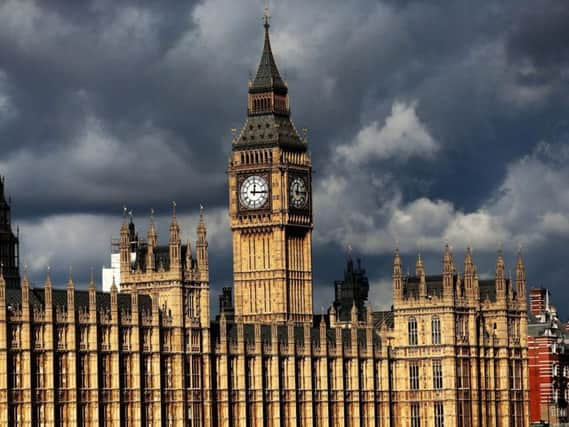A daughter's plea to put an end to the loan charge pain


Read more
The woman said Sir Amyas must call on the Government to abolish the loan charge in order to prevent further tragedies. Gayle, who did not want us to publish her family name, said her late father was a consultant engineer in his late sixties who had been facing a loan charge bill of around £50,000. Her father, who had no history of mental illness, took his own life almost a year ago. He is one of seven suicides of someone facing the loan charge that have been reported to the All-Party Parliamentary Group on the Loan Charge (APPG). Gayle has met Sir Amyas, who is holding a review into the charge, and has also given evidence to MPs. She said: “They should treat people as human beings and not label them as tax avoiders. “Many, many people did not go in with the intention of avoiding tax. They took professional advice. My dad always took advice and he trusted them. “He had nothing to be ashamed about. He did nothing illegal.” She added: “I would like him (Sir Amyas) to put an immediate stop to the loan charge. “I just want him to stop everyone’s suffering. I just want him to see what is really going on, and also for him to say that he wants them to learn and this will not happen again.” Gayle said her dad was "just amazing”. She added: “He was a really loving man.”In the months leading up to his death, Gayle said her father had become worried after being informed of the loan charge.She added: “With hindsight, it was clearly preying on his mind. . He seemed to get a bit low.“He felt really ashamed. It’s only from his letters we know exactly how he felt. Shame was a huge part of it.”He lost weight and became increasingly withdrawn, Gayle said.She added: ”We often spoke about why he didn’t just sell up and come and live with us. We wanted to look after him. I couldn’t wait to look after my dad. He’d always looked after me. I just wanted to take care of him.”Gayle said she was telling her story because she wanted people to understand the “true impact” of the loan charge. She added: “I don’t think we are the only family grieving. We are trying to do the right thing.”
The Treasury has commissioned an independent review to consider the impact of the loan charge.A Treasury spokesman said: “Sir Amyas Morse is independent and has full control over the review. “He will report back by mid-November, so we can give taxpayers certainty about what they need to do in advance of the January Self Assessment filing deadline.” As a former head of the National Audit Office, Sir Amyas has extensive experience in scrutinising the government on Parliament’s behalf, the spokesman added. Sir Ed Davey MP, chairman of the APPG, and other members of the group, recently met Sir Amyas to express “serious concerns about the whole loan charge scandal”.
Advertisement
Hide AdAdvertisement
Hide AdThe loan charge was introduced in response to the Treasury’s concerns about “disguised remuneration schemes” which involved individuals being paid through loans, usually via an offshore trust in a low or no tax jurisdiction, which they did not have to repay.The All-Party Parliamentary Loan Charge Group (APPG) argues that the charge is retrospective and overrides taxpayer protections –claims which have been rejected by the Treasury.Workers including locum doctors and nurses have been hit with large, unexpected tax bills dating back to 1999.A submission compiled by the APPG states: “The evidence clearly shows that the main reason the vast majority of people entered into payroll loan schemes was not to avoid tax, which is the basis for the aggressive pursuit by HMRC and indeed the whole punitive approach of the loan charge.”The statement added: “The overwhelming majority of people sought and followed professional advice. “The way the Treasury and HMRC continually claim that people entered into these schemes as a form of deliberate aggressive tax avoidance is simply not supported by the evidence.”An HMRC spokesman said: “We know that large tax assessments can cause worry and anxiety so we have put in place dedicated resources, including specially trained HMRC officers, to support more vulnerable customers. “We have also set up a disguised remuneration helpline, which can provide details of organisations such as the Samaritans and Mind as appropriate, and we are committed to time to pay arrangements in respect of the loan charge which can run for as long as the taxpayer needs.”The spokesman added: “We are committed to treating everyone we serve with respect and sensitivity to their needs and circumstances.”